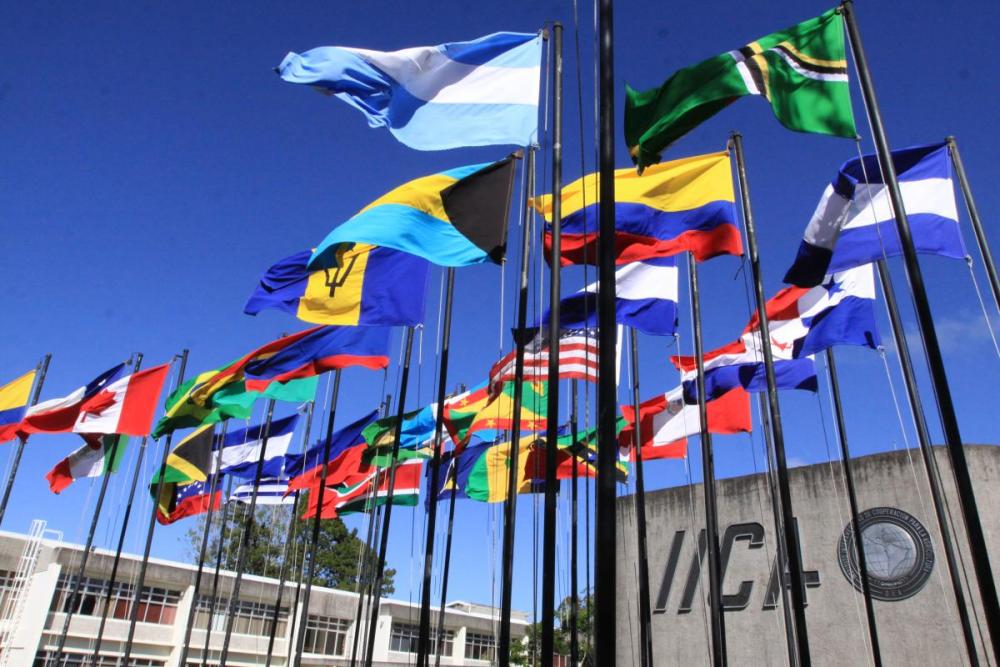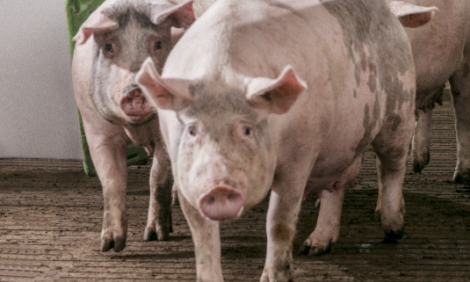



Ag Ministers of Americas approve coordinated action to prevent ASF from entering the region
Representatives pledged to carry out joint actions with the collaboration of international organizations linked to food production and animal health
The commitment was made at the 2021 Conference of Ministers of Agriculture of the Americas/Inter-American Board of Agriculture (JIA), held this week in San José, Costa Rica.
The disease was detected in the Dominican Republic and raised concerns across the region due to its potential effect on swine production. At the event, the Minister of Agriculture of the Dominican Republic, Limber Cruz, reported on the current situation and actions underway in his country, which officially notified the appearance of the disease in its territory in July.
The ministers of IICA's 34 member countries pledged to carry out joint actions in collaboration with international organizations linked to food production and animal health. They also asked the Director General of IICA, Manuel Otero, to support the development and execution of binational projects and actions, and the implementation of work plans defined in the sub-regional spaces, with the aim of eradicating outbreaks and preventing and containing the spread. of the virus, for the Hemisphere to regain African Swine Fever free status.
“We need to be aware that, despite not being transmissible to humans, the African Swine Fever could impact the economy of our continent and the lives of our populations. A coordinated action between our countries is essential”, emphasized the minister of Agriculture, Livestock and Supply of Brazil, Tereza Cristina, who assumed the presidency of the JIA.
African swine fever is a highly contagious hemorrhagic disease that affects domestic and wild pigs, causing serious economic and productive losses. There is currently no known vaccine and prevention and control are essential, as they are the only tools available to fight the disease. The disease does not pose a risk to human health, neither through direct contact with infected animals, nor through the consumption of any product of swine origin.
The director-general of the World Organization for Animal Health (OIE), Monique Eloit, participated in the JIA meeting and also expressed concern about the situation in Haiti, where the impact of natural disasters can increase the danger of the disease, as there are many movements of people and goods. “People should follow some simple biosafety tips to limit the risk of spread. We must also consider coordinating with the customs and immigration services to prevent dissemination,” he added.
IICA's Director General, Manuel Otero, informed that the Institute is joining forces to fight the disease, given the risk it poses to sources of work and foreign exchange in a fundamental industry in the context of the region's agri-food systems.
Other themes
On the second day of the Conference, the ministers also approved a joint position of all countries in the Americas in defense of agriculture, the environment and food security in the region. "Our message defends the end of agricultural protectionism, fair employment and income conditions and the importance of innovation in the countryside," explained Tereza Cristina.
A resolution was also approved to adopt measures to support Haiti, which is suffering the consequences of last month's earthquake. According to the document, IICA should coordinate the assistance needed to remedy the damage to Haiti's agricultural and rural sector, in particular by supporting family farmers with seeds and inputs, given the imminent period of planting corn and beans.






